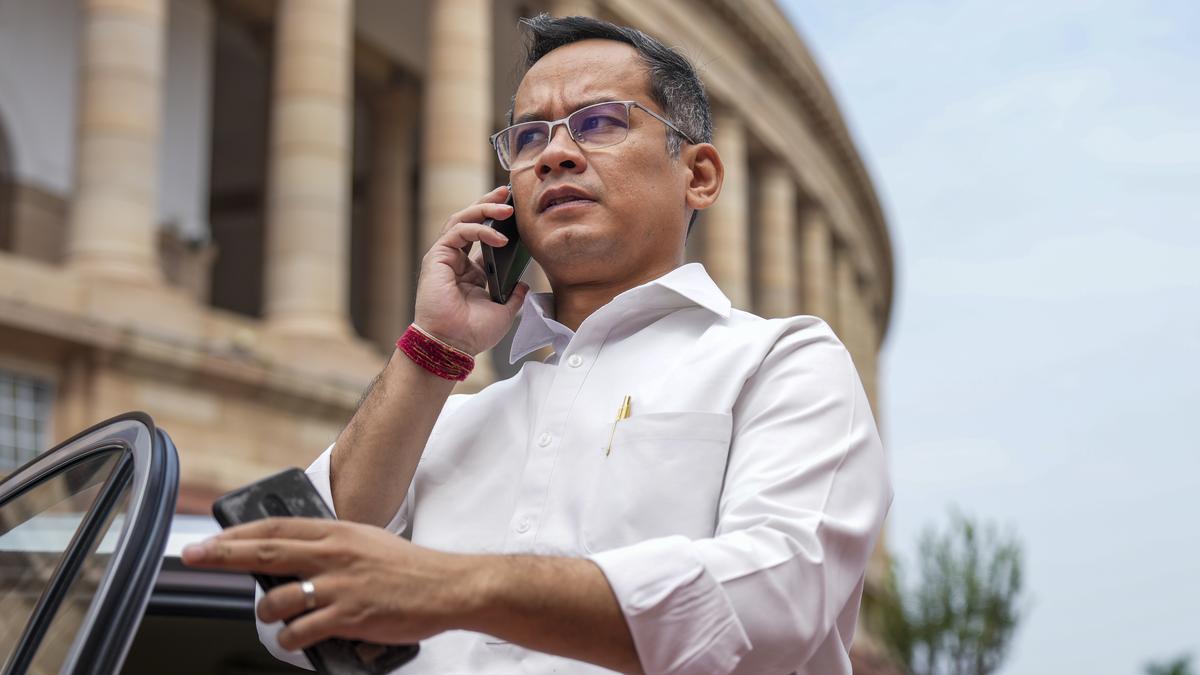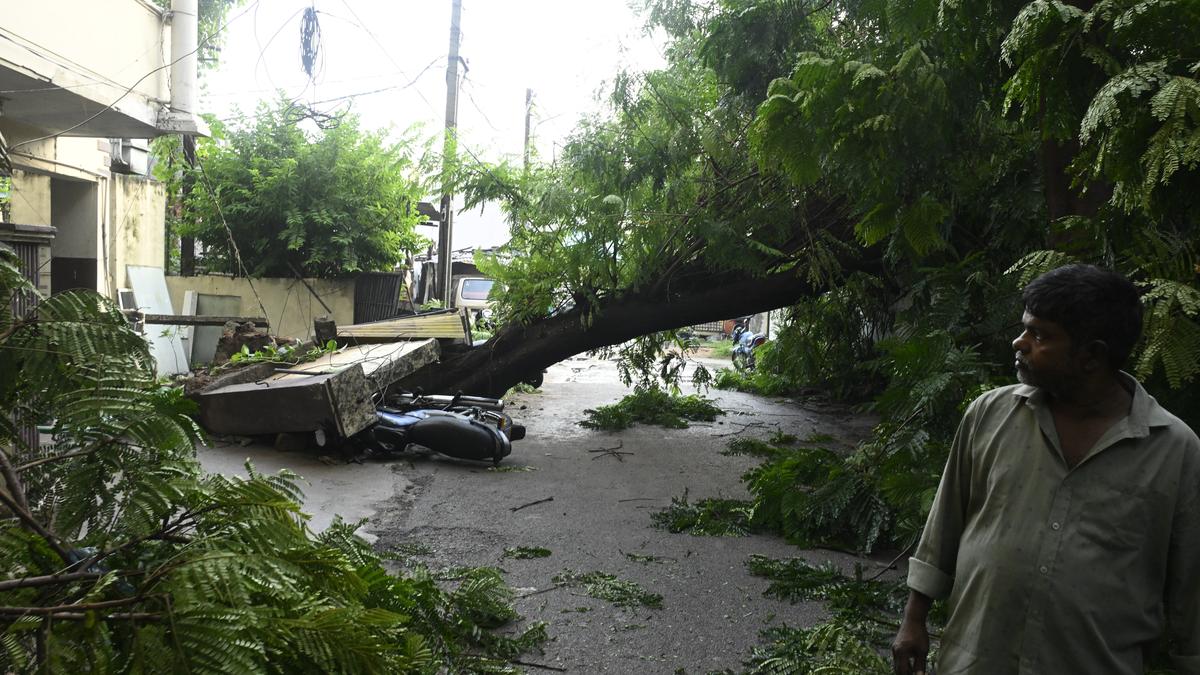Being a founding member of the Ashoka University, can you shed light on the evolution of Ashoka and way forward?
In 2014, we started undergraduate programmes and that has been a great run. We started with a small batch of 128 students and nine faculty members and today we have close to 3,000 students, and close to 250 permanent and visiting faculty members. I think that the current phase of Ashoka is to scale and expand into areas which we originally may have kept aside or deprioritised. So, the last few years, we focused on a lot on Science - Physics, Chemistry, Biology. We always had Computer Science and Math, but we really stepped up our activity, our enrolment and our activities in research. And then we launched our first new initiative, which is the School of Management. So, we will now start a Bachelors in Management starting academic year 2026-27. We are right now roughly 25 acres. We’re going to move into an almost 100-acre campus. Fortunately, we’ve been able to acquire contiguous land from the Haryana Government.
In 2024-2025, there have been immense challenges for students to go study abroad. Many of them are now choosing not to go abroad. So how do you see this trend affecting Ashoka University?
This year with a big change in the immigration setup and people aren’t getting visas or are just getting skittish about going abroad, we do see a trend that a lot more students are choosing us as their first preference while earlier they would have chosen us as a backup. A bunch of people who initially chose not to apply to Ashoka later applied to us in a special round that we created. This is mostly in Bachelors courses. We got over 100 people applying to Ashoka in that last round, mostly those who interestingly had never applied to Ashoka, and had gotten admission into good universities around the world.

One of the founder members (Sanjeev Bikhchandani) commented that they are contemplating ‘walking away’, from Ashoka University in light of a string of controversies. How do you view this statement?
We have 200 founders, out of which, one of our founders said that. The founder was writing to an alumnus who was accusing the former of not standing by a Professor (referring to Prof. Ali Khan Mahmudabad) or not taking a particular stance. So, the founder said — “I have to work so hard to raise money for you”. We did things that we needed to do.
Also, the Professor is on a paternity leave of absence and is part of the Ashoka ecosystem. We have assisted his family in a humanitarian way, like for any other employee.
I don’t think any of us are walking away. I have looked people in the eye and said give me money so that I’ll build a great University for you. People have now given us more than ₹3,000 crores, and this is actually this is hard earned money.
Now most Universities in India are making money hand over fist even in the name of nonprofit. A lot of surpluses can be generated, if we step back on scholarships. We have actually invested ₹600 crores in scholarships. So, if we had not given those scholarships, we could certainly find 50% more students who are paying students. But then the quality will suffer. We are choosing the harder road.
What are the top challenges in running Ashoka University?
The biggest challenge is to get the best faculty. On the research front, you have to hire the best faculty. Give them the freedom to do research and not overload them with teaching. Further, you have to give them funds and Ph.D. students to do research with. It’s really hard to recruit high-quality faculty and get them to come to India, let alone Ashoka.
Another big challenge is fundraising. Why should somebody give money to a new institution which they have no connection with? Funds usually come from alumni, but when you don’t have alumni, how do you raise money? And there are many demands on people’s money. You can donate to a school, look at girls’ education, poverty alleviation, environment, climate, etc. So why should they give to Ashoka which has the perception of an elite university.
How does Ashoka University balance between the current poor political climate and giving freedom of speech to students. This, especially in the light of the current U.S. Government’s moves to quell protests in America. And then there are domestic challenges on campus.
We are focused on high-quality education and of course you have the freedom to say whatever you want. I can’t control that. If you have high-quality people, they will say what they want. The rest, you have to deal with the outside environment. Some things, the outside environment will let go. Some things, it will not and people should be aware of that. We like to explain to people that this is being allowed or is acceptable and what is not being allowed. Please be aware of that and that what you say, then reflects on the University. We say that to our founders, faculty members, staff, students, everyone.
I have seen many different eras in my own life. I was born in the 1960s. I saw the emergency. I saw the Janta government and I saw political upheavals in Bihar where I grew up. I think the environment will come and go; we have to focus on what we are here for. We are here for providing a high-quality education in the classroom.
All universities should have freedom of speech. But it comes at the cost of something. You maintain that balance by staying focused on what you are supposed to do and not getting involved in other controversies.

Students at the Ashoka University campus protested your collaboration with the universities in Israel by threatening to boycott the convocation last year. Later they voiced concerns about security scanning at the campus. Then the (Ali Khan Mahmudabad) Professor controversy happened. Now there’s a housekeeping staff controversy happening…
What’s the problem if students are protesting? I used to protest when I was at [IIT-] Kanpur. I was on a two-day fast because I didn’t like the food. But don’t judge me. In each situation there are two sides to the narrative, right? Take any narrative and I can tell you what the other side is from what the students are saying. And we have to solve for it.
The housekeeping staff are actually getting paid much more than other peers in the market. We are required to pay minimum wage. We pay much more than that.
There is a narrative being spread that they did not get any increase in five years, that is absolutely not true. Workers got a 20-23% increase. Why would I devote 15 years of my life to building a university for this country? For raising scholarship money to provide access to the most underprivileged children in this country and then mess with workers’ compensation. It makes no sense.
The University has to adhere to government regulations, so have you ever faced situations where that has become difficult for you.
I can say on record that no one in Haryana or University Grants Commission or in the Central Government has ever given us any grief on regulations. You use those as our constraints against which we have to work. But these are these are the rules of the game. Can I excel at, you know, at what I am doing given the rules of the game? And we say, yes, it’s possible to do that. Nobody is proactively holding you back. In fact, most people in the government are very proud of what we have built. We have had a successful partnership with the Haryana Government in building the Chief Minister’s Good Governance Associates Programme.
We do not want to get drawn into distractions of these so-called controversies. They are very marginal. We don’t want to rile things up. We don’t want to overreact.
The case (of Professor Ali Khan Mahmudabad) is in the Supreme Court and the Supreme Court will decide it wants to do. Our job is to make sure that our students have a fantastic experience on campus and that the faculty get all the full freedom and support to do great research for us and for the country.



.png)
.png)
.png)
















 1 hour ago
3
1 hour ago
3








 English (US) ·
English (US) ·